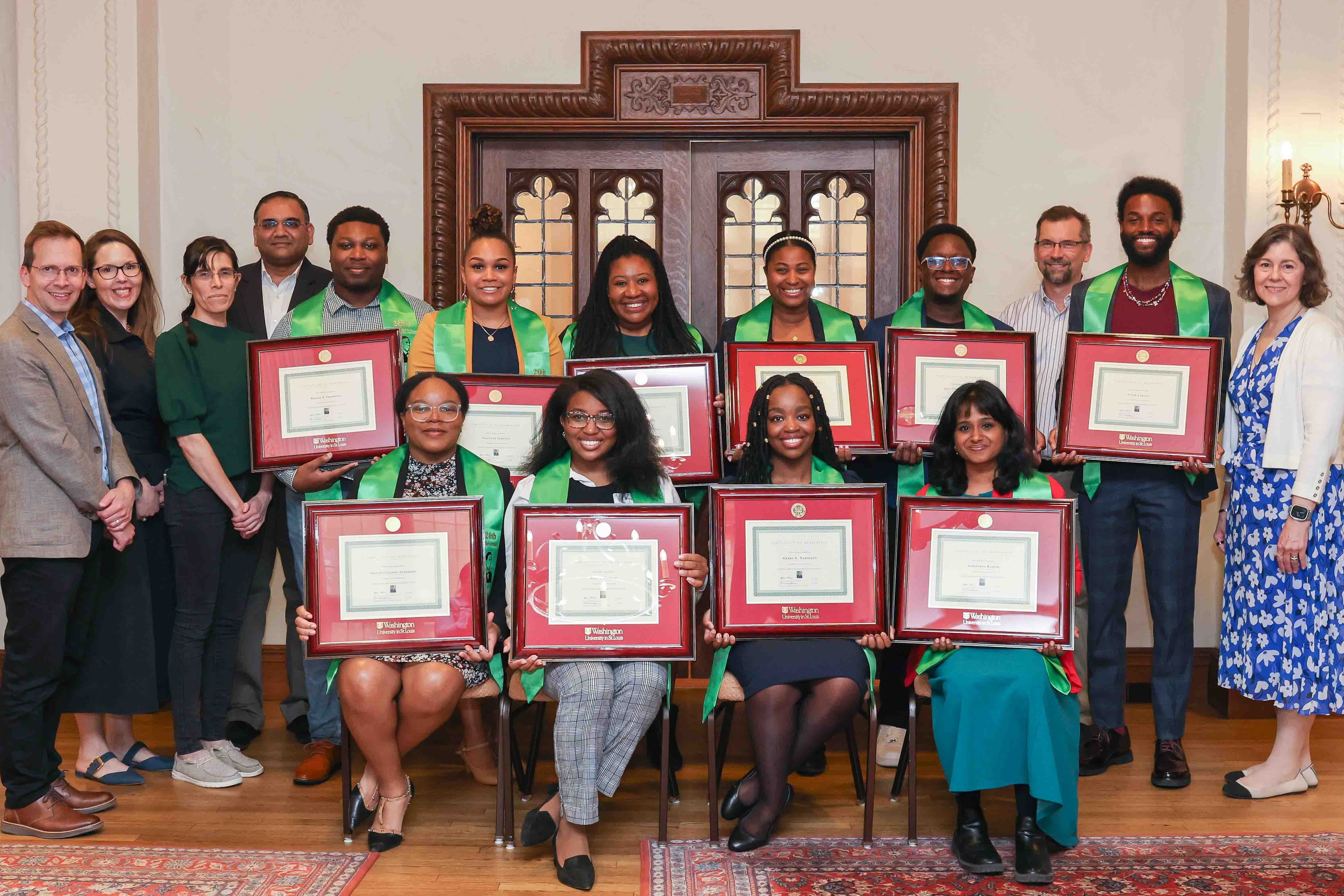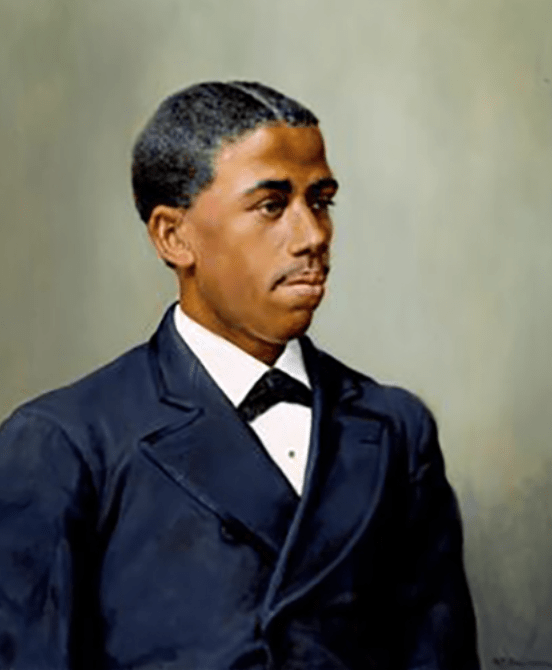
Established by Yale University and Howard University in 2005, the Edward Alexander Bouchet Graduate Honor Society recognizes outstanding scholarly achievement and promotes excellence in doctoral education and the professoriate.
The Bouchet Graduate Honor Society seeks to develop a network of preeminent scholars who exemplify academic and personal excellence, foster environments of support, and serve as examples of scholarship, leadership, character, service, and advocacy for students in the academy. In the spirit of Bouchet’s commitment to these pursuits both within and without the academic realm, inductees into the honor society bearing his name should also exhibit these qualities.
Edward Bouchet (1852-1918) graduated from Yale College in 1874. He went on to be the first self-identified African American to earn a doctorate from an American university when he earned a PhD. in physics at Yale University in 1876. At that time, Bouchet was the sixth person in the western hemisphere to earn a doctorate in physics. He was also one of the first African Americans to be elected to the prestigious Phi Beta Kappa Honor Society.
BGHS Member Qualities
Character | Bouchet Graduate Honor Society members exhibit the highest values of their university, through their integrity, honor, and exemplary conduct and behavior. Character may be exemplified through an individual’s emotional courage, principles, endurance, and perseverance. He or she must be reliable and consistent. At each member’s core must be an awareness of the importance of contributing and working for the good of society. |
| Leadership | Bouchet Graduate Honor Society members take their responsibility for their departments and their academic fields of study seriously. Bouchet Society scholars are the embodiment of the ideals of their respective universities. They not only represent the mission of their university, but they also demonstrate strong initiative. WashU Bouchet Scholars play a leadership role in extending access to the university to a wider community by creating and sharing knowledge. |
| Advocacy | Bouchet Graduate Honor Society members should advocate for broader access to graduate education and other resources within the academy. Activities might include advocating for the concerns of postdoctoral fellows and students, serving as a mentor, or helping to address the needs of other communities. |
| Scholarship | The Bouchet Graduate Honor Society is an academic honor society that is committed to the goals of lifelong education, as well as the production and dissemination of knowledge in the humanities, social sciences, and sciences. Bouchet Society members are committed to contributing to the development of their field(s) of study and to the application of knowledge into action that improves the lives and conditions of their communities. |
| Service | Bouchet Graduate Honor Society members are expected to actively contribute to the well-being of society by giving, remaining involved, sharing personal gifts and talents, and exhibiting a Bouchet-like commitment to the service of others. Examples of service might include participating in an educational program for youth, serving in local or state politics, or volunteering with a local non-profit organization. |
Application Information
Review the following information to learn more about eligibility, requirements, and how to apply.
To be eligible, an individual will:
- Be a WashU graduate student or postdoctoral appointee
- Through initial research achievement in a humanities, social sciences and sciences field, show outstanding promise as a scholar, as evidenced by independent investigation or current/former work on a dissertation project.
Graduate Student Applicants must:
- Be enrolled in a PhD program at WashU and be in good academic standing.
- Be considered “All But Dissertation” (ABD) (i.e., completed qualifying exam, orals, qualifying papers or equivalent) and be within a reasonable time frame of completing their PhD degree as expected within their discipline.
Postdoctoral Appointee Applicants must:
- Be a WashU postdoctoral associate or postdoctoral scholar at the time of the application submission and at the time of induction to the Bouchet society
- Show exemplary abilities as an early-career scholar, as evidenced by achievement in research and scholarship.
Members of the BGHS at WashU are required to:
- Register for and attend the Annual Yale Bouchet Conference on Graduate Education in the year that they are inducted into the Society and participate in the BGHS Induction Ceremony. The 2025 conference dates are April 3-6, 2025.
- Participate in WashU chapter inductee reception scheduled for each spring.
- Represent WashU’s BGHS chapter, assist in the selection process for the annual WashU Bouchet Speaker event and may be asked to speak at events.
Members of the BGHS at WashU receive:
- Coverage of travel costs and registration fees for the Annual Yale Bouchet Conference on Graduate Education in the year that they are inducted into the Society to participate in the BGHS Induction Ceremony.
- Participate in WashU chapter inductee reception and chapter events on campus.
- Access to the BGHS member network via the Bouchet Connect platform and invitations to national BGHS programming.
The 2026 cycle will open in Fall 2025.
- A completed application form (link below). Incomplete applications will not be considered.
- A personal statement (1-1.5 pages) that explains how the applicant embodies the characteristics of Dr. Bouchet. The statement should describe the applicant’s character, leadership, advocacy, scholarship, service, and anticipated contribution to the Society.
- A current curriculum vitae.
- A 250-word research description.
- For graduate student applicants only: An unofficial copy of the applicant’s transcript.
- Two letters of recommendation.
- For graduate student applicants: One letter should be from the applicant’s dissertation advisor or graduate faculty member who is knowledgeable about the applicant’s research and can describe the nominee’s current and potential contributions to their field(s) of study.
- For postdoctoral appointee applicants: One letter should be from the applicant’s current faculty mentor or PI who is knowledgeable about the applicant’s research and can describe the nominee’s current and potential contributions to their field(s) of study.
- For all applicants:
- The second letter can be from a faculty member, dean, director, or other professional contact or mentor familiar with the applicant’s research and/or service.
- Both letters should address how the applicant exemplifies each of the core values of the Bouchet Graduate Honor Society (i.e., CLASS: Character, Leadership, Advocacy, Scholarship, and Service) and embodies the Bouchet legacy.
Graduate Student Applicants: Please contact Jessica Cissell, assistant provost, with questions at jessica.k.cissell@wustl.edu.
Postdoctoral Appointee Applicants: Please contact the Office of Postdoctoral Affairs with questions at postdoc@wustl.edu.
2025 Bouchet Graduate Honor Society Inductees
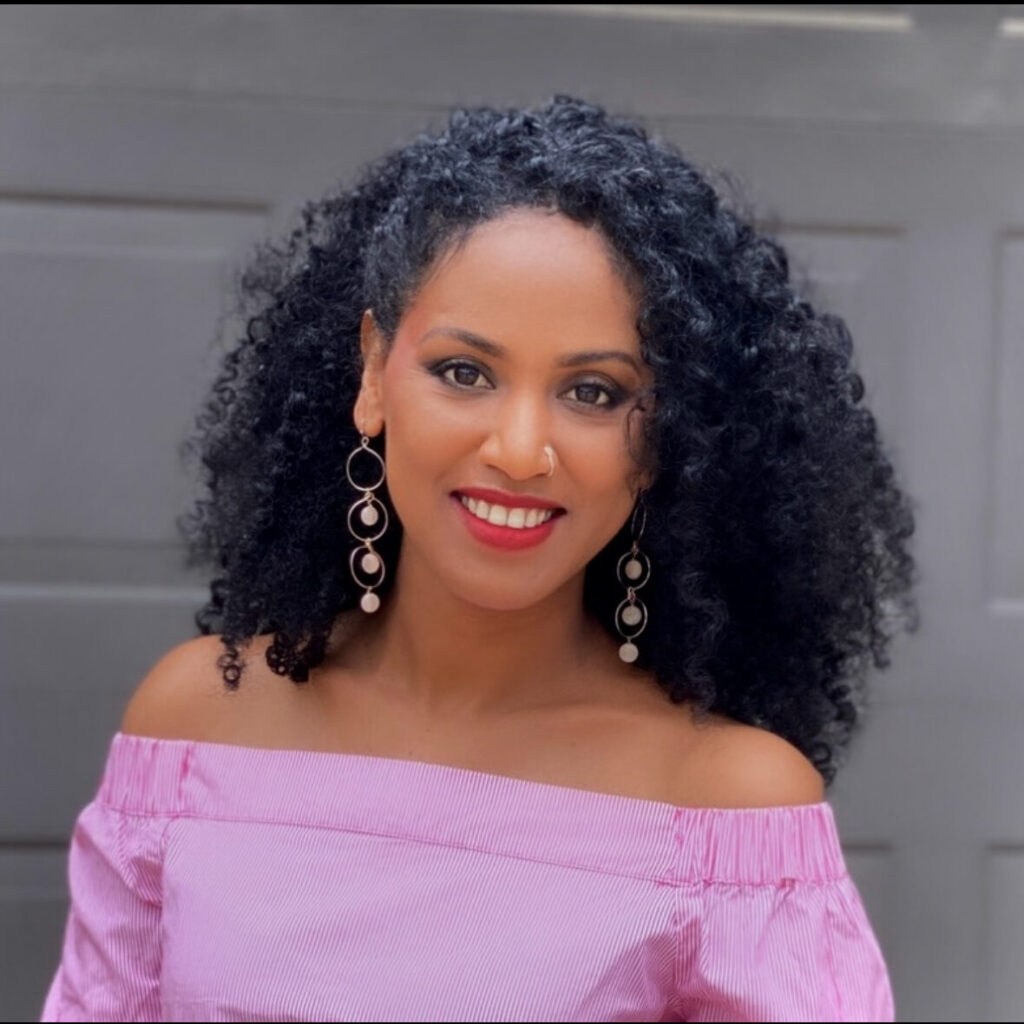
Fithi Andom, PhD, LISW
Social Work
Fithi Andom is a postdoctoral research fellow at WashU, funded by the National Institute on Minority health (T37MD014218). She earned a PhD in Social Work from the Brown School at WashU. Her research focuses on developing community-engaged mental health interventions to improve the behavioral, health and educational outcomes of children exposed to adverse environments. She is committed to advancing research that prioritizes the voices, experiences and strengths of marginalized communities. Fithi holds an MSW from Ohio University, where she was awarded the Outstanding Graduate Research Award and inducted into the Phi Alpha National Honor Society for Social Work. She is also a recipient of multiple awards for innovative research ideas, recognizing her contributions to addressing global health challenges and public health issues. An avid advocate for underserved communities, Fithi volunteers with grassroot Eritrean refugee organizations in the US and Israel to promote maternal and child health. As well, most recently at the Brown School, she has served as the project co-coordinator for a pre-doctoral summer institute (LEAD: Leadership, Equity, And Diversity in Higher Education) for underrepresented child welfare professionals interested in pursuing a postgraduate degree. In this role, she actively supported the recruitment of diverse child welfare researchers across the fields of public health, social work, and policy.
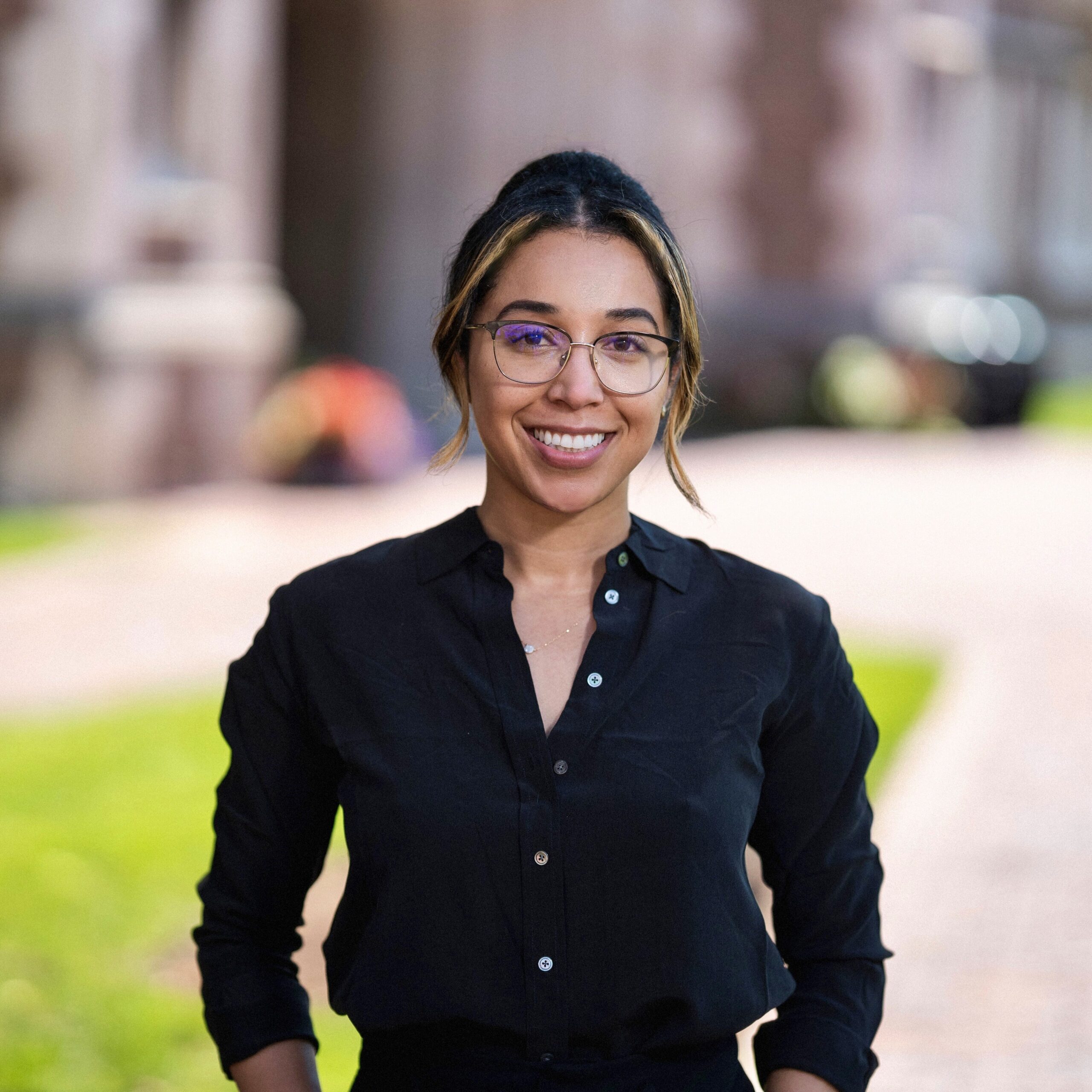
Maegan Ruiz Arney
Education
Maegan Arney is currently a PhD candidate in Educational Psychology at WashU using mixed methods approaches to support the emotional well-being and belonging-in-context of educational communities. Her research is deeply informed by her experiences as a teacher and school in St. Louis city schools, and by her coursework in her three previous master’s degrees in Teaching, Psychology, and Education. She studies how belonging plays a role in students’ choices and motivation, and tests novel interventions to reduce inequality and promote belonging for students whose belonging is most in doubt in schools. She has presented her research at numerous conferences and previously received the Olin-Chancellor’s Fellowship for her PhD studies. During her PhD, Maegan has been an active member of the graduate student community — she has served as the Vice President of the Graduate Student Senate, an interdisciplinary mentor through the Office of Graduate Studies, and the President of Kappa Delta Pi. She is also active in professional organizations, such as the American Educational Research Association, American Psychological Association, and Society for Personality and Social Psychology, where she has served as a mentor, peer advisor, campus ambassador, and committee chair. Maegan has also mentored numerous undergraduate students through Dr. Chris Rozek’s Student Emotions & Belonging Lab, and looks forward to continuing to make a positive impact on the academic community as a member of the Bouchet Graduate Honor Society.
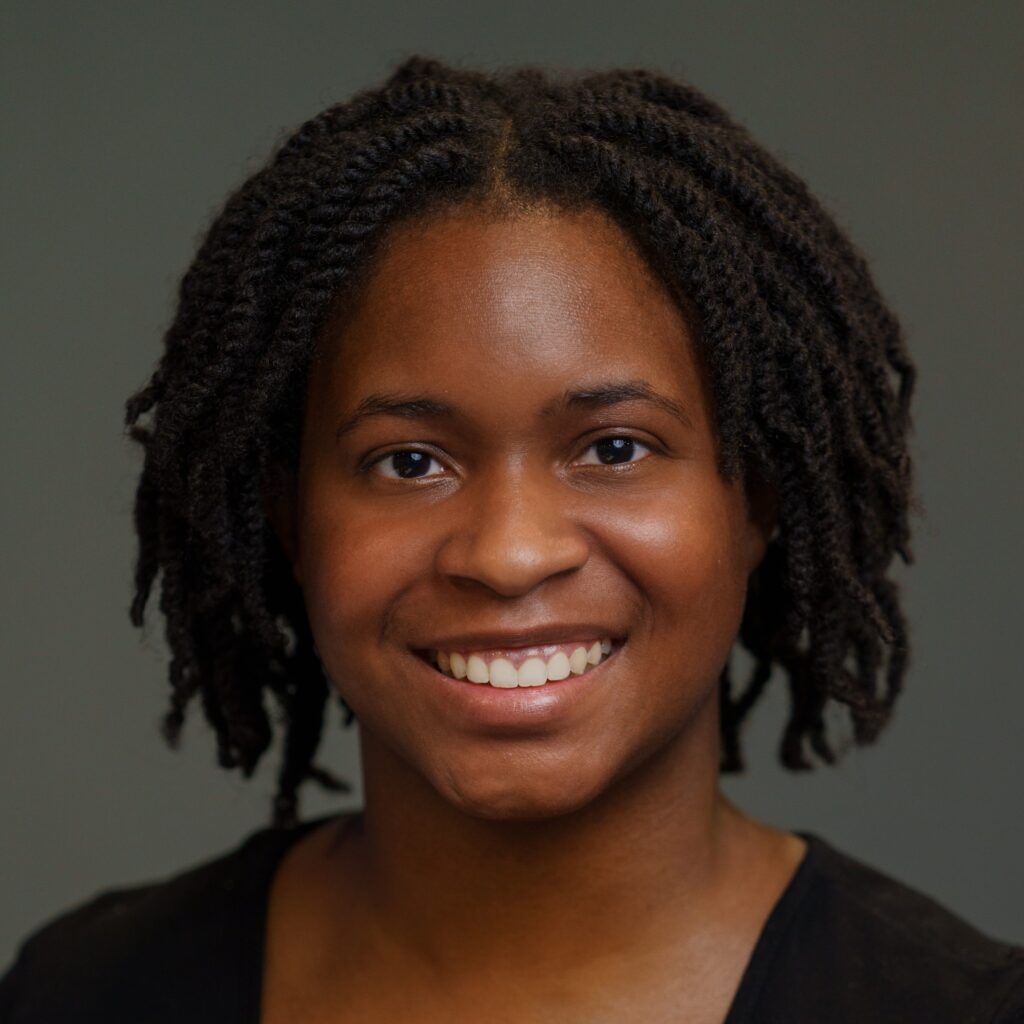
Ashlynn Berry
Chemistry
Ashlynn Berry is a PhD candidate in Chemistry at WashU. Her research focuses on nanoconfinement and transition metal catalysis for water oxidation and clean hydrogen production. She received her Bachelor of Science in Chemistry with a minor in Mathematics from the University of Alabama at Birmingham in 2020. Ashlynn was the recipient of the Office of Science Graduate Student Research award in 2023 where she had the opportunity to work at Sandia National Laboratories, expanding her work in nanoconfinement to hydrogen storage. She is active in her community in varying capacities including serving as president of WashU’s Black Graduate Student Association for the 2022-23 academic year and mentoring high school students in the St. Louis area. She is currently serving as the treasurer/secretary of the WashU Chemistry Department’s Peer Safety Committee which won the Outstanding ACS Student Community Award for the 2023-24 academic year. Ashlynn hopes to continue to promote environmentally friendly energy production in the future.
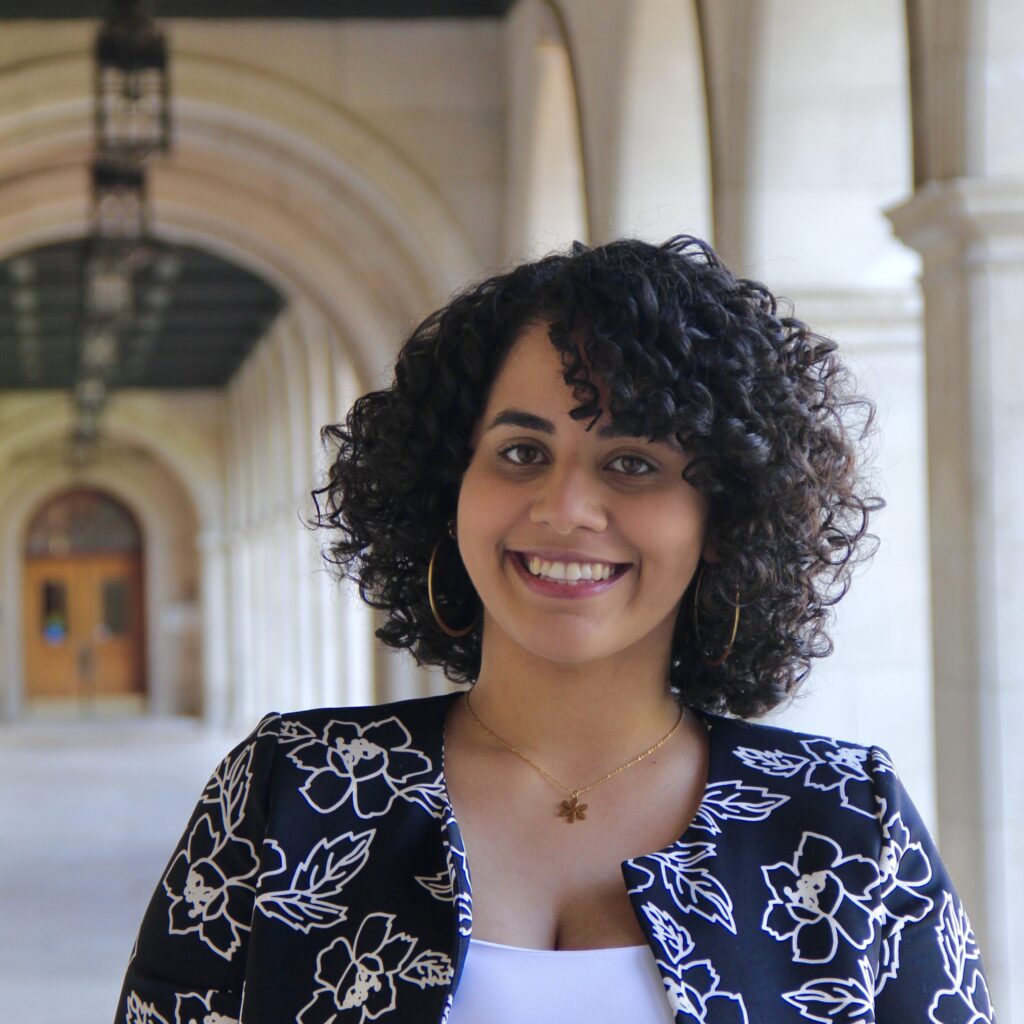
Maria Felicita Gonzalez-Aponte, PhD
Biology
Maria Felicita Gonzalez is a Postdoctoral Research Fellow in the Department of Biology at WashU in Dr. Erik Herzog’s lab. Originally from Puerto Rico, Maria received a BS in Natural Sciences from the University of Puerto Rico-Cayey, then pursued a Postbaccalaureate Research Program at the University of North Carolina-Chapel Hill, and recently earned a PhD in Neuroscience from WashU. Maria’s research focuses on understanding the interplay between circadian biology, neuroscience, and brain cancer biology. She discovered that glioblastoma, the most aggressive brain tumor in adults, integrates into the brain’s circadian system and uses daily signals like glucocorticoids to grow. Her groundbreaking work has yielded various first-author publications, one recently featured in the cover of Cancer Cell, further emphasizing the potential of circadian-based interventions for improved cancer treatment. Beyond the lab, Maria is dedicated to teaching, mentoring, and advocacy. She has assisted in teaching courses like Human Biology, Biological Clocks, and Research Explorations in Genomics, and has mentored numerous undergraduate and graduate students. Her commitment to serving the community is exemplified by her work on the Science Education Partnership Award (SEPA) Project and co-development of a partnership with Girls Incorporated of St. Louis, providing underserved students with enriching educational and scientific experiences. Maria’s commitment to academic excellence, leadership, service, and advocacy extends through every aspect of her life. By promoting diverse and safe spaces, and mentoring the next generation of scholars, she aims to create lasting positive change in academia and beyond.
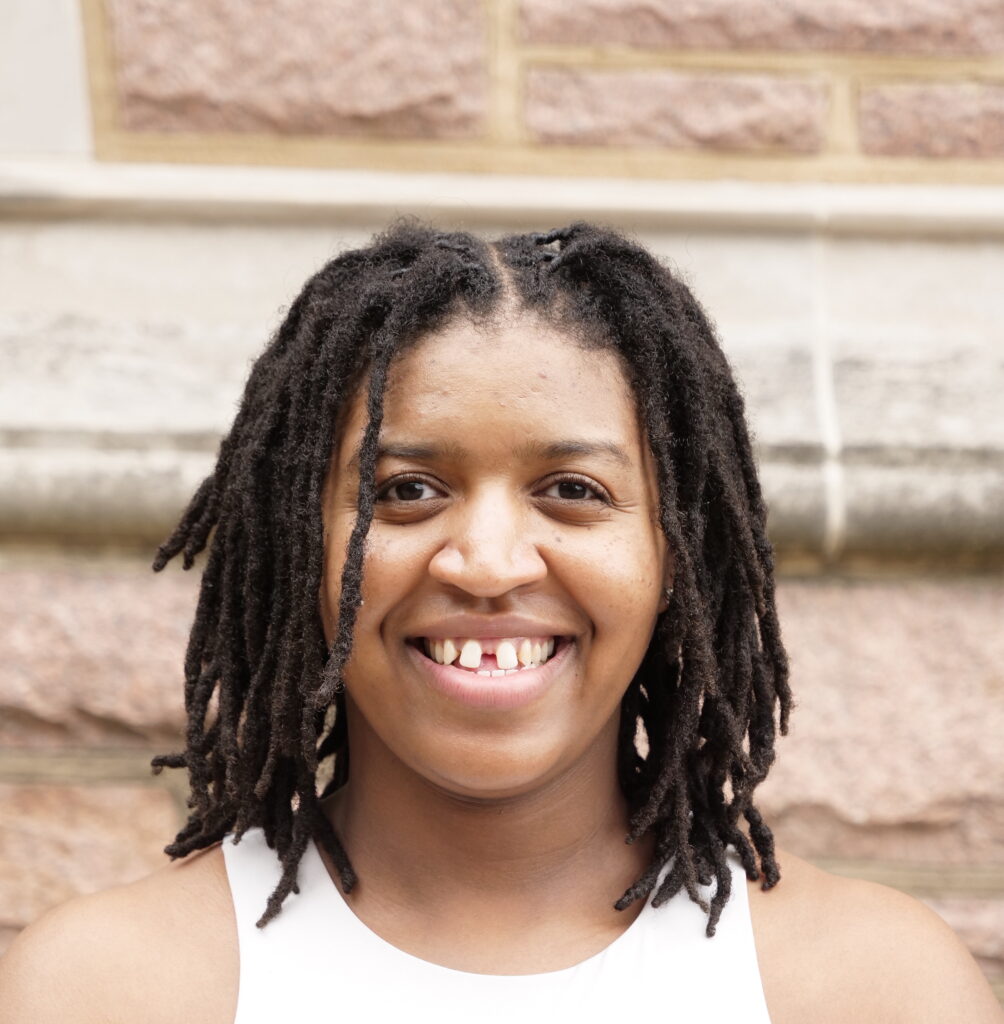
Tiana Johnson
Mathematics
Tiana Johnson is a candidate for the PhD in Mathematics at WashU. Her research focuses on analyzing neural networks and implementing defensive mechanisms against adversarial examples with applications in tsunami prediction. Tiana received her M.A. in mathematics from WashU in 2023, and MS in applied mathematics from North Carolina A&T State University in 2021. She received her BS in mathematics from Saint Xavier University in 2015, where she was a Schmitt Scholar. As a first-generation student, Tiana served as a mentor to other first-gen students in the Trio Student Success Program during undergrad. She was a mentor to high school students during her time working at the Illinois Mathematics and Science Academy (IMSA) and is currently serving as a graduate mentor for North Carolina A&T State University Grad Mentor Collective. Tiana is passionate about building the confidence of the next generation of mathematicians. She puts her passion into action by volunteering with the WashU Math Circle to help expand the math interests of students ranging from elementary to high school students. Tiana currently serves as the president of the Black Graduate Student Association at WashU and uses her role to create and strengthen the community of Black graduate students on campus.
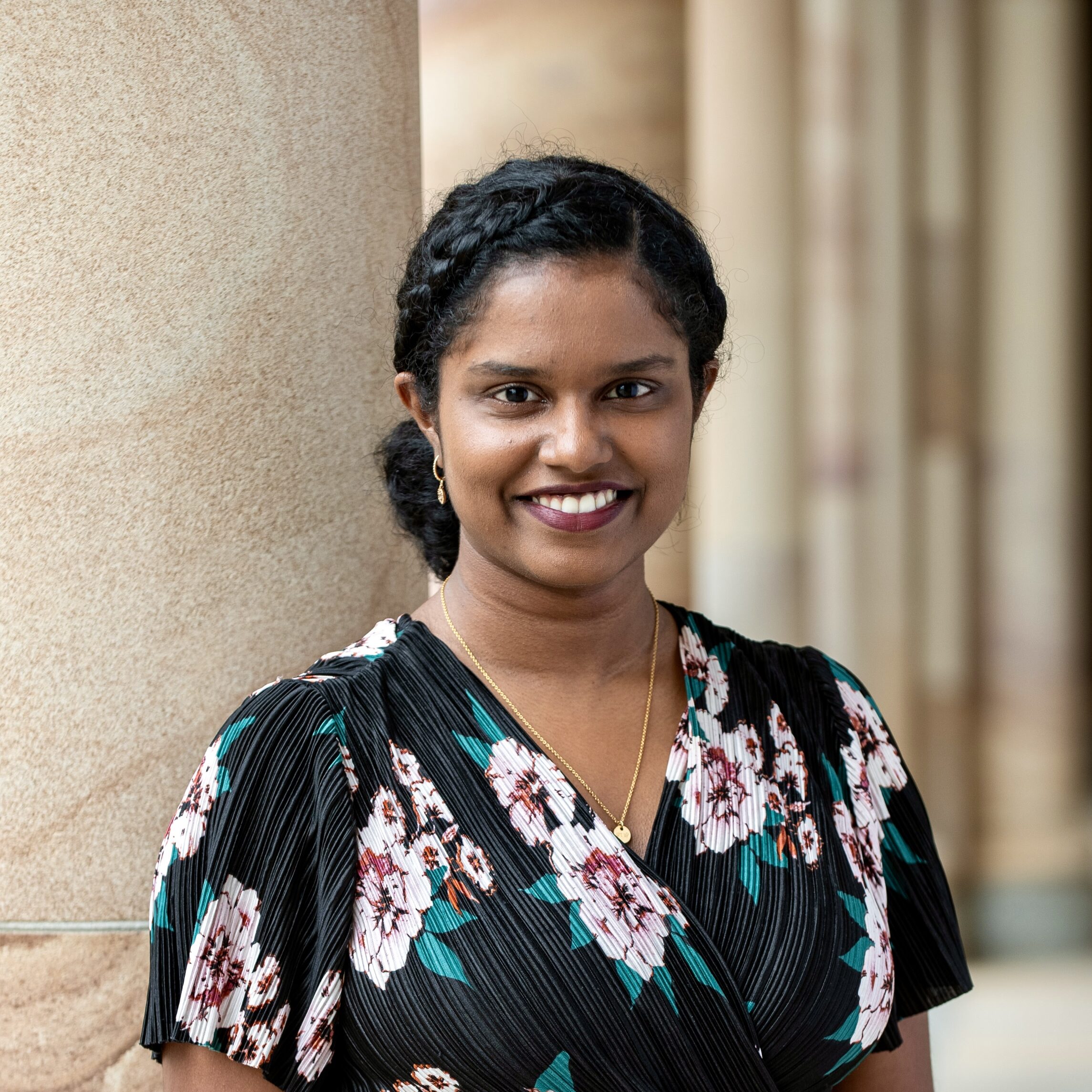
Keri-Lyn Kozul, PhD
Biochemistry & Molecular Biophysics
Keri-Lyn Kozul earned a Bachelor of Science (Class 1A Hons.) and a PhD in Biomedical Sciences from the University of Queensland, in Brisbane, Australia. Her work was the first to identify the biochemical mechanisms of a lethal form of mitochondrial disease, uncovering dysfunctional mitochondrial quality control mechanisms as a key driver. During this time, Keri-Lyn led two publications, contributed to three others, and was awarded a PhD Top-Up Scholarship from the Mito Foundation and Dean’s Commendations for academic excellence. She also served as the president of two committees representing student perspectives to her department and wider faculty. She then moved to Washington University School of Medicine in St. Louis, where she currently works as a postdoctoral fellow. Keri-Lyn continues to explore the intricacies of mitochondrial disease, characterizing a novel disease-causing genetic mutation. She has been recognized as a W.M. Keck Postdoctoral Fellow in Biomedical Research, awarded to early-career postdoctoral researchers with potential to become leading experts in biomedical research. Keri-Lyn is also actively involved in various committees including the departmental Women’s Group and the Student/Postdoc Liaison Committee. She has completed training in mentorship, leadership, and management as awarded by the Office of Postdoctoral Affairs at WashU Medicine. Ultimately, Keri-Lyn is passionate about using her practical research skills to find answers that point towards cures for rare diseases. She is also dedicated to serving her community through her career in medical research and advocating for overlooked voices in science.
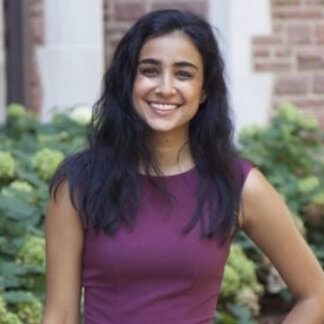
Jaisal Merchant
Psychological & Brain Sciences
Jaisal Merchant is a Clinical Psychology PhD candidate and Olin Fellow at WashU. She received her bachelor’s degree, magna cum laude, from Tufts University. Her current research, supported by an NIH F31 grant she was awarded, examines how social factors may enhance motivated behavior deficits in individuals with schizophrenia-spectrum disorders. She hopes this research will improve understanding of these motivational deficits in schizophrenia (for which there are currently no treatments) and inform the development of accessible, community-centered interventions. Jaisal has published several papers on her research, been invited to give talks at national and international conferences, and received awards including the Elise Herzog Mental Health Research Fund, Smadar Levin Travel Award, and Association of Women Faculty Student Award. Jaisal also engages in clinical therapy and assessment and has prioritized providing care to traditionally underserved individuals. Her commitment to mental health equity extends to her leadership and advocacy efforts. Jaisal is a co-founder and co-leader of Dismantling Systemic Shortcomings in Education and Clinical Training (DiSSECT), a national organization dedicated to improving antiracism in mental health training programs. She has presented on DiSSECT’s work in several settings including co-chairing a symposium on DiSSECT at the American Psychological Association national conference and giving a talk at the Academy of Psychological Clinical Science’s Summit on the future of Clinical Science training. Long-term, she hopes to continue integrating her research, clinical work, and advocacy to support the development and implementation of accessible interventions for individuals with serious mental illness.
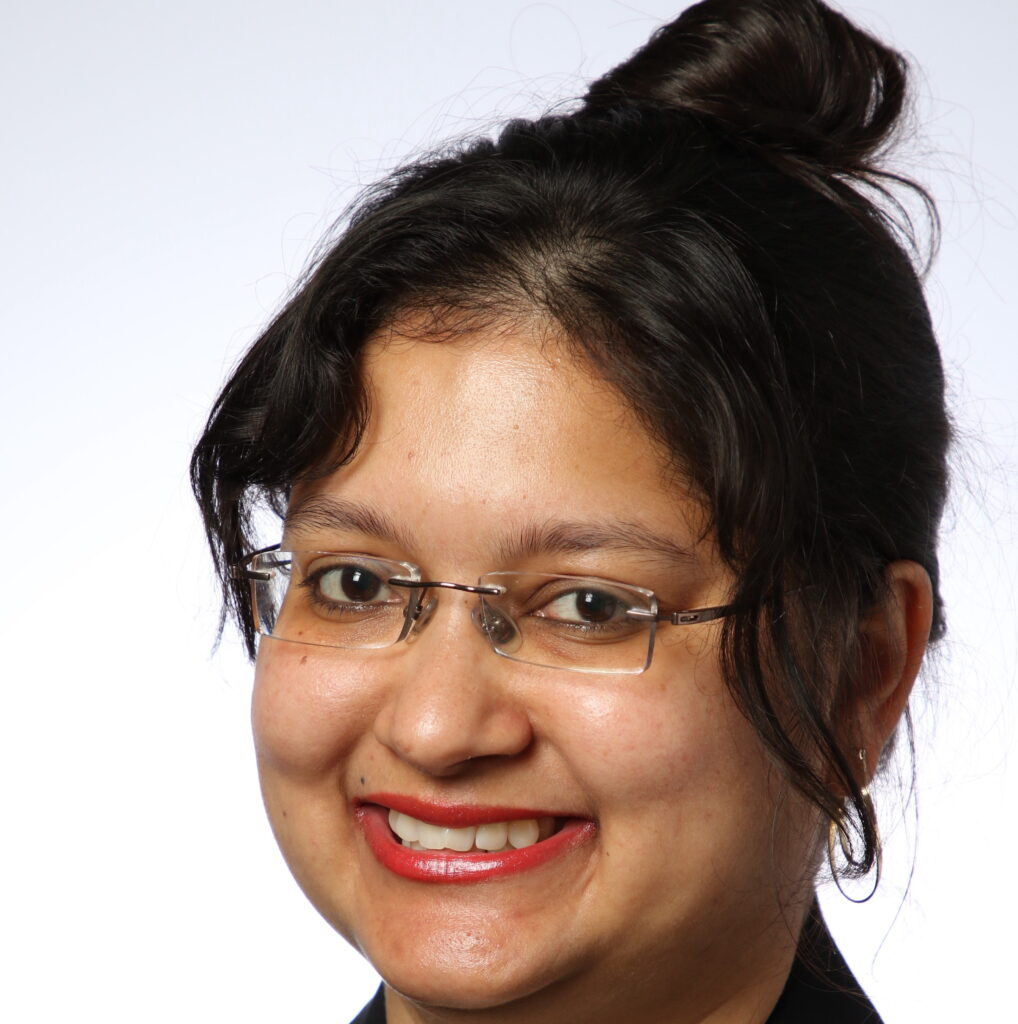
Richa Mishra, PhD
Oncology
Richa Mishra earned a PhD in Immunology and Infectious Diseases and is currently pursuing Postdoctoral Research in Oncology Division, Department of Internal Medicine at WashU. Her primary research involves developing therapeutic solutions for breast cancer and myeloma patient care. Dr. Mishra embraces leadership roles to foster collaboration and amplify diverse voices. As Vice President of WiSTEM, she organized workshops, science fests, and mentorship initiatives to empower women in STEM. At the AWIS (Association of Women in Science) Saint Louis chapter, she promoted education outreach and advocated for bridging gaps in academic policies. She has been recognized by the best storytelling award in science communication for making scientific research accessible to multiple audiences. Her advocacy extends to grassroots efforts like fundraising for the Susan G. Komen Foundation, supporting community engagement events, and promoting diversity in academia, including mentoring students in research programs like DICER at WashU. Beyond academia, she is involved in initiatives for young students and Girl Scouts through hands-on experimental skills in STEM education. She volunteers in non-profit services at BALSA as a consultant, supporting local entrepreneurship in St. Louis, and collaborates with them to help shape their ideas into business models. Her work on non-coding RNAs led to multiple publications and grant applications. Dr. Mishra’s journey as a researcher, leader, mentor, and advocate reflects a commitment to excellence, equity, and societal well-being that aligns with her long-term goal of fostering collaborative research, advocacy, and mentorship in cancer research for transformative therapies in healthcare.
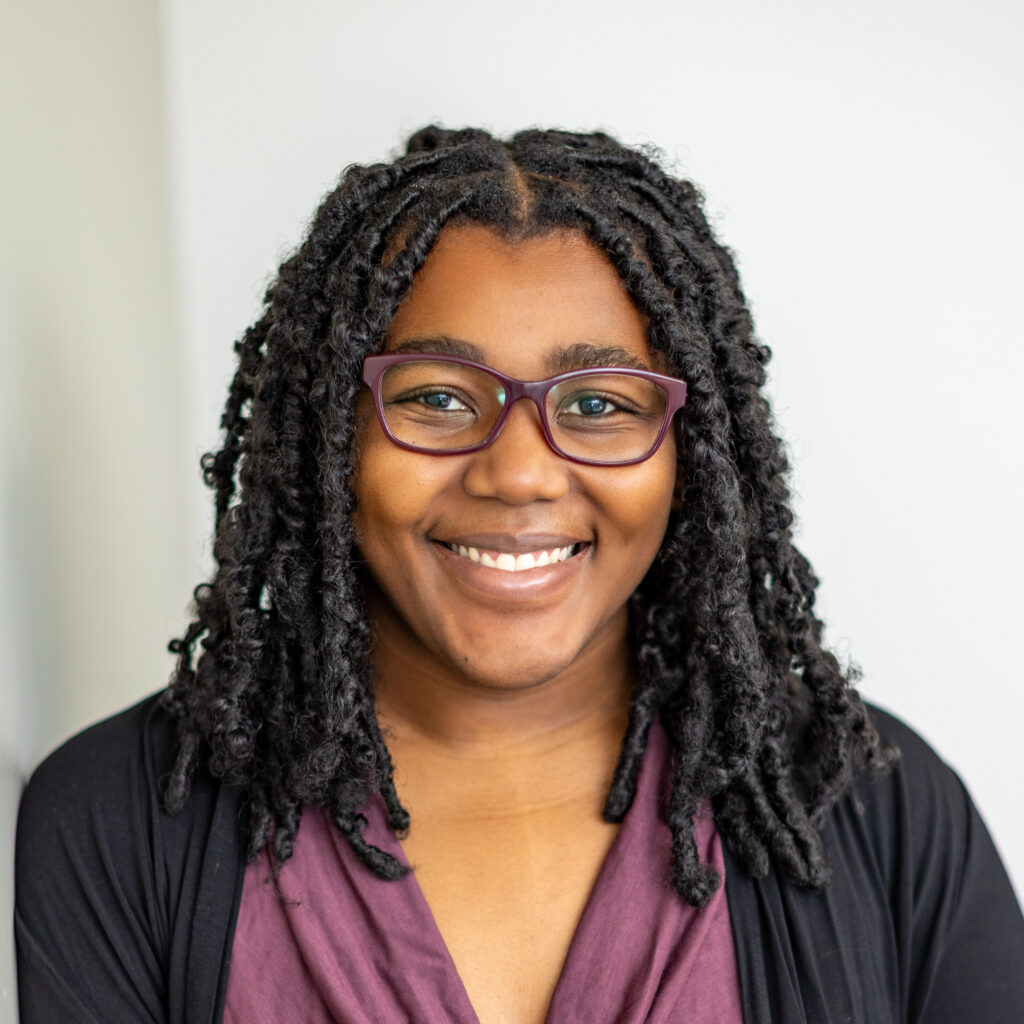
Sierra Wallace
Molecular Genetics and Genomics
Sierra A. Wallace is a PhD candidate in the Molecular Genetics and Genomics (MGG) program within the Division of Biology and Biomedical Sciences at WashU. Her thesis project focuses on determining replication stress signatures in BRCA1 mutant ovarian cancers in the lab of Dr. Alessandro Vindigni. Sierra is a member of Phi Beta Kappa as well as other academic societies and she was awarded a fellowship through the National Science Foundation’s Graduate Research Fellowship Program in 2021. She received her Bachelor of Science in Biological Sciences and minor in Psychology at the University of Maryland, Baltimore County (UMBC). While at UMBC, she was a Meyerhoff Scholar, Howard Hughes Medical Institute Scholar, and Undergraduate Research Training Initiative for Student Enhancement Scholar. At the end of her first year at WashU, Sierra joined the Vindigni lab to conduct her thesis work. As a member of the lab, Sierra has mentored trainees and made significant contributions to the published literature entitled “A RAD18-UBC13-PALB2-RNF168 axis mediates replication fork recovery in BRCA1-deficient cancer cells.” Outside of lab, she serves as a student representative for the MGG program and editor-in-training in the science communication group called InPrint. Additionally, Sierra is the treasurer of the student organization, Association of Black Biomedical Graduate Students; an organization with the goal of fostering community amongst black graduate students at WashU and with the St. Louis community.
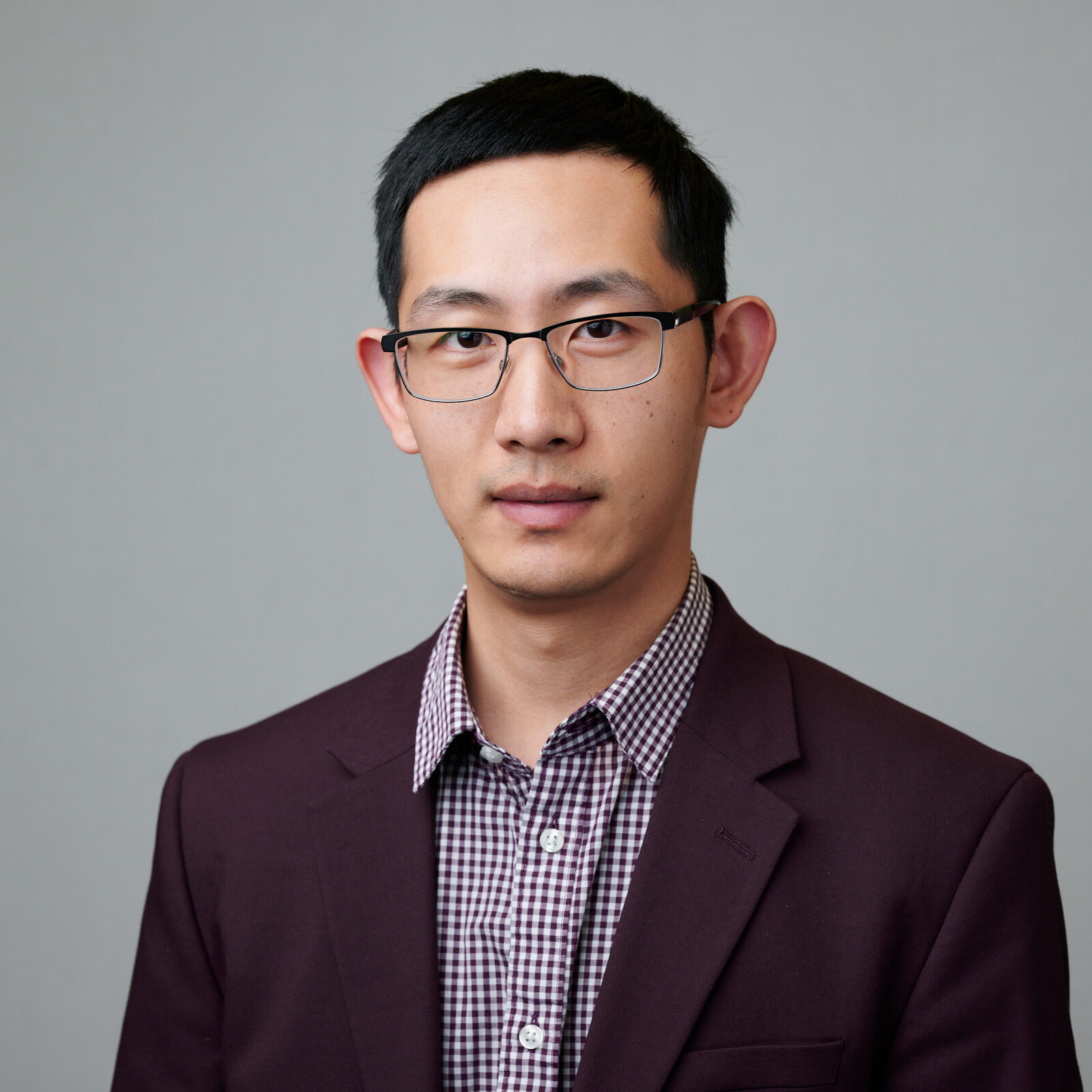
Ray Yang, PhD
Chemistry
Ray M. Yang is a postdoctoral research associate in the Department of Chemistry at WashU. He earned his PhD in theoretical physics from the New Zealand Institute for Advanced Study at Massey University, where his doctoral thesis was recognized on the Dean’s List of Exceptional Theses for its significance and excellence. His interdisciplinary research focuses on developing stochastic methods for computationally studying complex physical and chemical systems, from ultracold atoms near absolute zero to metal surfaces heated to thousands of degrees. At WashU, Ray pioneered the surface nested sampling algorithm, a significant advancement in accurately predicting the surface structures of heterogeneous catalysts for sustainable energy processes. He also holds a Bachelor of Science with First Class Honors, double majoring in chemistry and mathematics with a minor in physics, from the University of Otago. As an undergraduate researcher, he received three summer research scholarships, leading to three peer-reviewed articles in top journals, including the Journal of the American Chemical Society (JACS). Beyond research, Ray is committed to knowledge dissemination and public science outreach. He is a certified instructor with Software Carpentry, teaching free programming lessons to researchers. Through the Letter to a Pre-Scientist program, he exchanges letters with students in low-income schools to showcase STEM careers and inspire participation in science. He also serves as Vice President of the WashU Postdoc Society, advocating for and supporting the postdoctoral community. He is always available to help, support, serve, and truly care for those around him.
